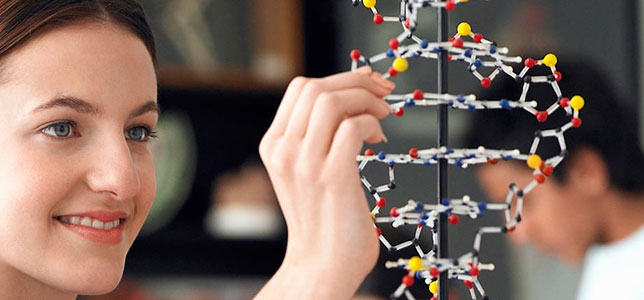Free Resource Intros High Schoolers to Cancer Studies, Careers
- By Dian Schaffhauser
- 05/09/16

Just three months after President Obama announced a new "moonshot" initiative to eliminate cancer, a group of organizations has teamed together to bring high schoolers into the work. "Decoding Cancer" offers free standards-aligned curriculum made available through a program sponsored by education media company Discovery Education, non-profit Val Skinner Foundation, the LIFE Center at Rutgers Cancer Institute of New Jersey, and the Rutgers School of Public Health.
The idea is to facilitate "meaningful discussions" among students, teachers and families to promote science literacy, develop 21st century skills, raise awareness of cancer risks and prevention and to generate interest in science and health care careers.
The content comes from the Biology of Cancer, Online Education Connecting Teens (BioCONECT) curriculum, which is designed for grades 9–12 and is itself the product of a group of collaborators, including the Rutgers Cancer Institute and the former University of Medicine & Dentistry of New Jersey, which is now part of Rutgers.
The material introduces fraternal twins Steve and Nikki, high schoolers whose mother has been diagnosed with breast cancer. The pair is "confused about the disease" and what's happening to their mom, so they reach out to other students for answers. Student participants answer Steve and Nikki's questions using the knowledge they gain as they work through the curriculum.
Students create virtual presentations on breast cancer diagnostic tools using wiki technology. The resources include handouts, videos and other optional ingredients. Topics cover what cancer is, diagnostic tools used for breast cancer detection, the role of genetics in cancer, how to understand pathology reports and how to reduce risks.
The teacher guidelines include quizzes with answer keys and details for meshing the instruction with Next Generation Science Standards.
The program also provides 15 health and biomedical career profiles, each covering required course of study, average annual salary information and what a "day in the life" of that career looks like. A "family discussion guide" offers advice on how to talk with a teenager about breast cancer. And soon the content will include a virtual lab that allows students to act as physicians and technicians to test tissue samples from different "patients" and develop custom treatment approaches based on their results.
The program has already been tested out in schools in New Jersey, South Carolina and Florida.
"Cancer touches and deeply affects millions of people across the nation each and every day," said Mark Case, a science teacher at North Carolina's Guilford County Schools. "That's why it's essential that we support the study of cancer in the classroom today and empower educators with engaging, dynamic tools they can easily integrate into instruction to teach their students about this topic and help them understand the emotional affects. I'm looking forward to using these cutting-edge resources in my classroom to help deepen my students' understanding of the science behind cancer."
Decoding Cancer is available on its own website here or through Discovery Ed's Streaming Plus service.
About the Author
Dian Schaffhauser is a former senior contributing editor for 1105 Media's education publications THE Journal, Campus Technology and Spaces4Learning.